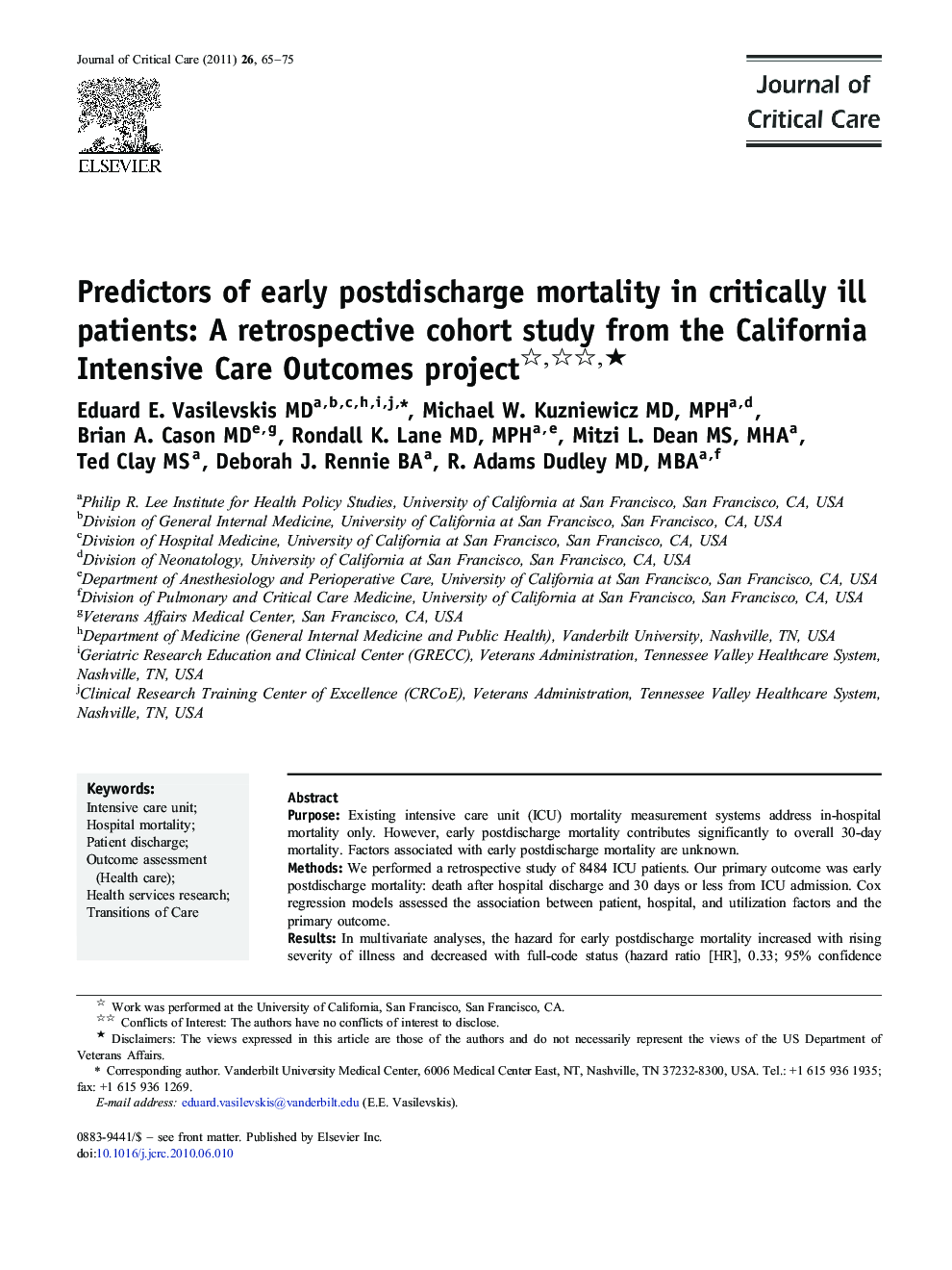| Article ID | Journal | Published Year | Pages | File Type |
|---|---|---|---|---|
| 2765399 | Journal of Critical Care | 2011 | 11 Pages |
PurposeExisting intensive care unit (ICU) mortality measurement systems address in-hospital mortality only. However, early postdischarge mortality contributes significantly to overall 30-day mortality. Factors associated with early postdischarge mortality are unknown.MethodsWe performed a retrospective study of 8484 ICU patients. Our primary outcome was early postdischarge mortality: death after hospital discharge and 30 days or less from ICU admission. Cox regression models assessed the association between patient, hospital, and utilization factors and the primary outcome.ResultsIn multivariate analyses, the hazard for early postdischarge mortality increased with rising severity of illness and decreased with full-code status (hazard ratio [HR], 0.33; 95% confidence interval [CI], 0.21-0.49). Compared with discharges home, early postdischarge mortality was highest for acute care transfers (HR, 3.18; 95% CI, 2.45-4.12). Finally, patients with very short ICU length of stay (<1 day) had greater early postdischarge mortality (HR, 1.86; 95% CI; 1.32-2.61) than those with longest stays (≥7 days).ConclusionsEarly postdischarge mortality is associated with patient preferences (full-code status) and decisions regarding timing and location of discharge. These findings have important implications for anyone attempting to measure or improve ICU performance and who rely on in-hospital mortality measures to do so.
